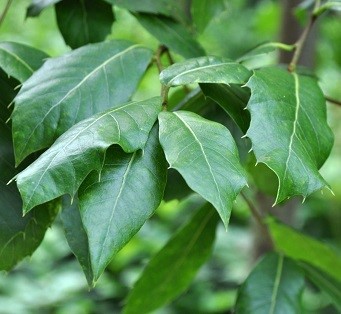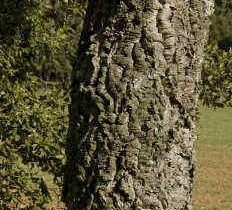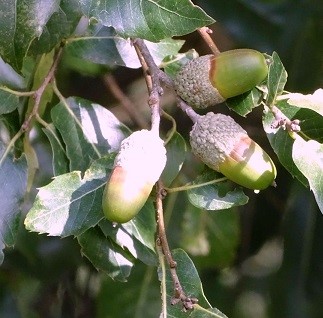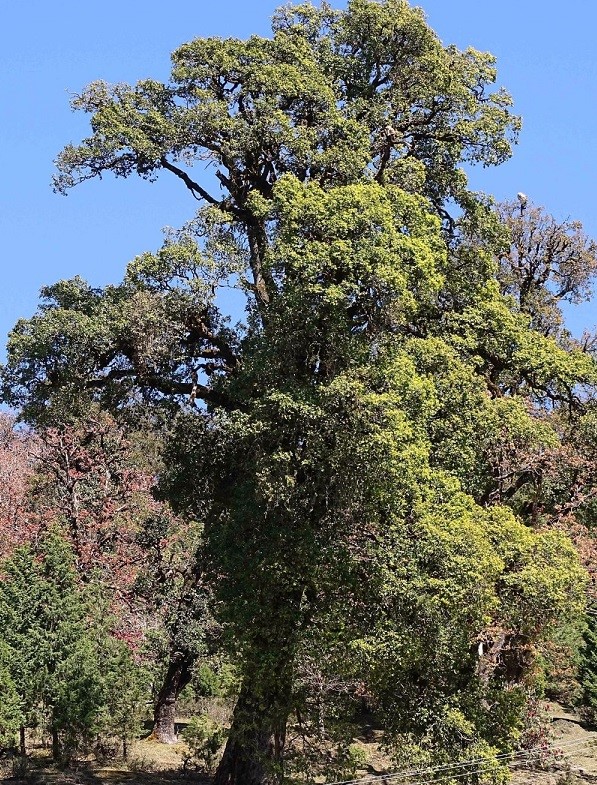Trees
Quercus dilatata Royle
Quercus dilatata Royle
Description :
A
large evergreen tree, 24 to 30 m tall and with a diameter of 0.7 to 1.5 m. The
crown is very dense. The leaves are simple, with smooth margins, 4 to 12 cm
long. It is monoecious. The male flowers or catkins are hanging bunches 3 to 5
cm long. The female flowers are short, erect bunches. The flowers occur between
April and May. The fruit is an acorn or nut, 2.5 cm in diameter. The fruiting
period is May to October, a year after pollination. It will coppice readily.
The coppice shoots are heavily browsed, and the tree is attacked by leafy
mistletoe. It is reproduced both from seed and by vegetative means. The fruit,
a nut, is solitary and has a very low viability. Slow growing, it has been
reported to have MAI of 0.4 in diameter. Coppice shoots have been recorded to
obtain heights of 0.75 m in 5 years and 3 m in 15 years. This tree is an
important component of the coniferous forest. In order to maintain diversity
attempts must be made to ensure that it is regenerated with the coniferous
species. Grains straight to very fine even textured. Sapwood is grey, and
heartwood is reddish grey with darker, streaks having specific gravity of 0.95
and a calorific value of 4900 kcal/kg.
Distribution :
The
tree is native to India, Pakistan, Afghanistan and Nepal. In Pakistan it is
found in the Himalayas Mountains. Specifically it is in Dir, Chitral, Swat,
Hazara, Tirah, Kurram agency, Murree Hills and Azad Kashmir. A moderately
intolerant tree that can stand shade better than most oaks. It grows on deep,
rich moist, well drained soils and prefers moist shady sites. It is prone to
wind throw. It requires a precipitation zone of 500 to 1200 mm/yr or more,
prefers a humid to sub-humid, cool-cold, temperate climate with a temperature
range of -20 to 35°C at elevations between 1600 and 2900 m.
Uses :
Heavy,
hard, resilient used as fuel wood, handles, agriculture implements, fodder,
charcoal, tannin and sled runners.



